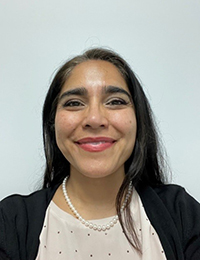UNITED - Spanish Latin American Welfare Centre enriching care delivery through ELDAC Linkages Program
A guest blog post by Barbara Leon, Operations Manager, UNITED - Spanish Latin American Welfare Centre
UNITED - Spanish Latin American Welfare Centre has served the Spanish and Latin American communities of Victoria for more than 40 years through a variety of programs and services.
The Spanish speaking community is an increasingly ageing one (Census Statistics document the ageing of communities who came from Spain and Latin America in the 1960s to the 1980s) and UNITED is at the forefront of addressing the needs of this ageing cohort. Given this, we understood that we needed to prepare our organisation for provision of home care to clients with increasing needs and frailties.
Our mission is to be a leading provider of culturally appropriate services for the Spanish speaking community, envisioning a healthy and resilient community. We currently operate a Home Care Packages program and Social Activity Groups for the elders in our community, as well as an Aged Care Community Visitors Scheme, servicing over 240 clients across our varied programs.
Our clients are now presenting with increasing frailty and complexity of need across our three main programs, which has been challenging. Given this reality, we noted that UNITED did not have strong connections with the palliative care sector, nor was our workforce adequately skilled or resourced for addressing increasing palliative care needs in a home care setting. Our workforce lacked the confidence to engage in advance care planning conversations with clients/families/carers. This was something we needed to address urgently.
We also wanted to address the social-cultural fear in relation to talking about death and dying within Hispanic/Latin American cultures. We realised we needed to take a whole of community approach, focusing on educating our community as well as upskilling and building capacity in our workforce.
Our participation in the ELDAC Linkages Program with a facilitator support model came at the right time given the increasing needs of an ageing Spanish speaking community. During the program we undertook a range of key improvement activities. Our first step was to hold a community palliative care forum to connect with Spanish speaking professionals involved in aged care and palliative care. This built our network with Spanish speaking professionals and palliative care experts.
From there, we held two community education sessions for our client community on the topic of advance care planning. The conversations that ensued were surprising and enriching for all, as many expressed they had not given thought to the concept of advance care planning.
These two key activities then led us to implement a range of organisational improvement activities. A key goal was to build knowledge and skills for our workforce in the provision of palliative care and to support clients and families to understand palliative care and advance care planning. We developed a multi-pronged approach to education across all staff.
To facilitate culturally sensitive conversations, we upskilled our teams around culturally specific aspects, end-of-life care options and advance care planning.
Resources were translated and created and developed into kits for staff and clients. These resources have supported our teams to guide our clients towards a deeper understanding of options in their own language.
We embedded a palliative approach within our systems and care processes. For example, standardising our communication system for identifying and communicating change/deterioration for our home care clients so that these changing needs may be proactively addressed. We introduced the concept of palliative care clinical supervision and mentoring for Case Managers to support care planning. Collaborative relationships with relevant stakeholders have also grown to better support clients and their families at end-of-life planning.
The ELDAC Linkages Program supported us to strengthen our home care service. We have enhanced our knowledge and awareness of referral pathways, palliative care support services and options for clients, resulting in better care and better outcomes for our community.
Participation in the ELDAC Linkages Program has cemented our confidence as a care provider – we realised that “we now have a place in this community” of care. It has helped us define our palliative approach more clearly as a home care provider.
Most importantly, participation in the ELDAC Linkages Program has enriched our care delivery through linking, resourcing, and upskilling our organisation, enabling us to build a solid foundation. Our team is better equipped to deliver culturally appropriate palliative care as we progressively grow our organisation and support our community.

Barbara Leon
Operations Manager, UNITED-Spanish Latin Americal Welfare Centre